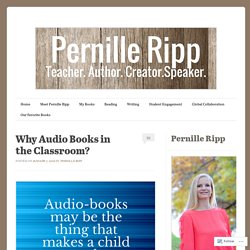

Listen Up: The Benefits of Audiobooks for Your Heart and Mind. If you’re an avid audiobook listener, then you’ve felt the delicious anticipation of pressing “play” when you’re ready to dive into the next chapter of an audiobook.

Convenience is one of the obvious benefits of audiobooks: you can listen anywhere, as long as you have your phone and some charge in it. But can audiobooks enrich your life—and your family’s life—in ways you haven’t considered before? As audiobook sales continue to rise—up to $1.2 billion in 2019, according to a 2020 press release from the Audio Publishers Association (APA)—research and opinions on the benefits of audiobooks have been popping up in more places than ever. Whether you’re already sold, or still need a little convincing to jump on the listening bandwagon, here’s what experts are saying about the mental, physical, and emotional benefits of audiobooks. Audiobooks Newsletter Sign up for Audiobooks to receive the latest from the audiobooks world. Audio Books vs. Reading. If you think listening to an audiobook isn’t as effective as good old fashioned reading, you may want to learn about some new research that compared the two.
To most bookworms, reading a physical book is the ultimate form of learning, immersion, and experience. Some go as far as suggesting that listening to an audiobook is “cheating.” Despite this cultural belief, new research offers evidence that our brains react the same way when listening to an audiobook and reading. A recent study in the Journal of Neuroscience highlighted work done at UC Berkeley that mapped the brain activity of nine participants while they read and listened from “The Moth Radio Hour.” Once the subjects’ brain activity was mapped, researchers discovered that the stories stimulated the same emotional and cognitive areas, regardless of their medium.
Learn more about this study here. Audiobooks vs Reading: The Rules Are, There Are No Rules. A love of reading shouldn’t have parameters or rules as to what type of reading “counts.” Personally, I have found an immensely rewarding common ground in my reading life with both audiobooks and reading. Hint: It’s just more fun to love both! Here is a list of ways to view audiobooks vs reading in some major categories. Hopefully, we can transition this fight from the dreaded comments section and into a big comfy chair where your headphones sit along side your bookmarks and everyone loves each other.
Conversations about children's books. Classroom Audio. “What should I read next?”

He says, eagerly awaiting my answer. His question takes me by surprise, after all, there is no possible way he has finished the book I downloaded for him two days ago. He has mastered the art of fake reading a few months ago. “You’re done already? What did you think?” “It was so sad…at the end, when his dad came. “When did you find the time to read it?” “Last night…It got interesting so I listened to it all night. 3 hours, I think.” This child who had not read a chapter book all year. And he is not alone. Some may say that does not count as reading, I certainly used to balk at it counting toward any reading goal, this year I am discovering otherwise.
Audiobook Benefits. School librarian Mary Ann Scheuer remembers a second grader who couldn’t keep up with the class during reading time. The child was a grade-level behind in reading, and while the rest of the class could sit quietly for 30 minutes, engrossed in Horrible Harry, this child began to act out after ten frustrating minutes with the book. On Scheuer’s recommendation, the teacher introduced the student to the same story via an audiobook; he listened to the story, and then sat alone with the book to read on his own.
Scheuer recalls the boy saying, “I read it so much faster by myself after I listened to it!.” She added, “It was a game changer for him.” Teachers and parents who read aloud to children have long known that good stories have the power to captivate the most restless of kids. Research underscores the link between listening and literacy. For Ashley Alicea, a third grade teacher at W.J. Audiobooks help Struggling Readers. When students in grades 3–8 have reading skills that are below benchmark, they lose ground more rapidly.

As they move up in school, reading becomes all about learning new information and content. Providing access to human-read audiobooks can support reading skill development. Audiobooks allow students to hear explicit sounds of letters and letter patterns that form words. Audiobooks also help students engage in text and gain exposure to more words, ultimately improving vocabulary, comprehension and critical thinking skills.
Here are seven reasons why audiobooks are the perfect accommodation for struggling readers. 1. When students are offered the opportunity to have audiobooks in the classroom, their world can finally open up. 2. Students in grades 3-8 come to the classroom with differing experiences for sure, but those who’ve also struggled with reading arrive even less prepared. 3. 4.